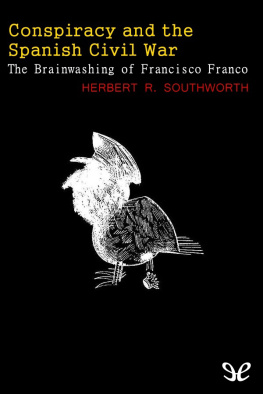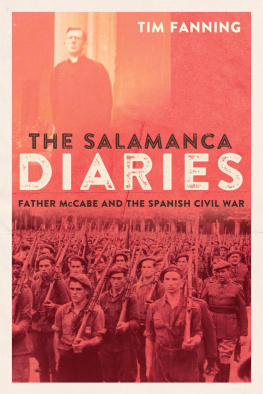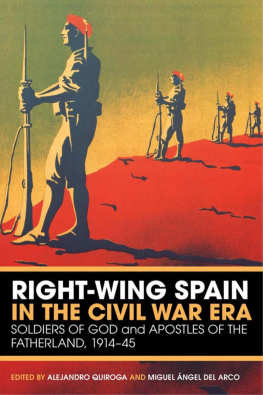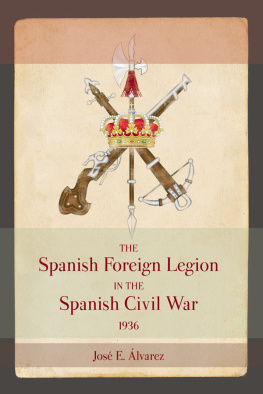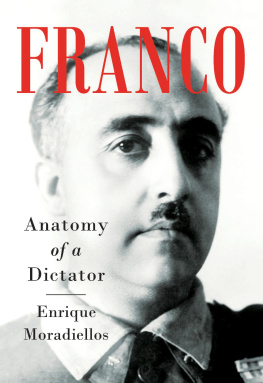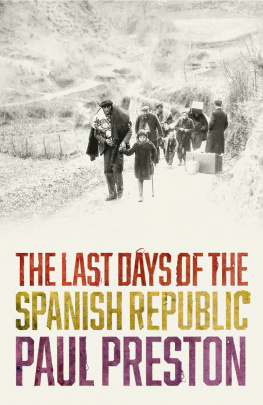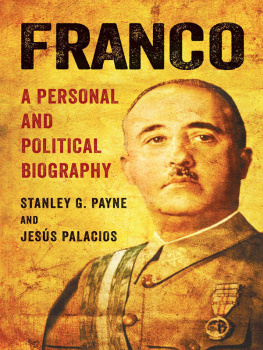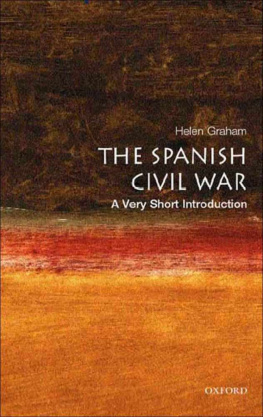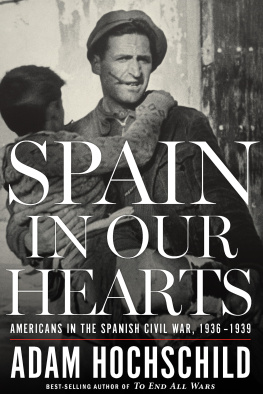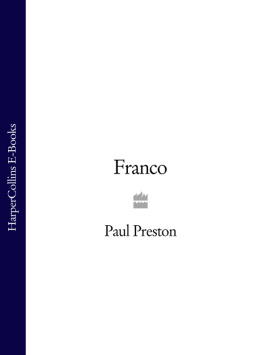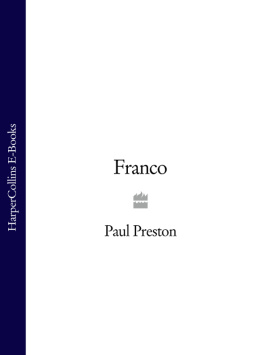Herbert R. Southworth - Conspiracy and the Spanish Civil War. The brainwashing of Francisco Franco
Here you can read online Herbert R. Southworth - Conspiracy and the Spanish Civil War. The brainwashing of Francisco Franco full text of the book (entire story) in english for free. Download pdf and epub, get meaning, cover and reviews about this ebook. year: 2002, publisher: ePubLibre, genre: Religion. Description of the work, (preface) as well as reviews are available. Best literature library LitArk.com created for fans of good reading and offers a wide selection of genres:
Romance novel
Science fiction
Adventure
Detective
Science
History
Home and family
Prose
Art
Politics
Computer
Non-fiction
Religion
Business
Children
Humor
Choose a favorite category and find really read worthwhile books. Enjoy immersion in the world of imagination, feel the emotions of the characters or learn something new for yourself, make an fascinating discovery.
- Book:Conspiracy and the Spanish Civil War. The brainwashing of Francisco Franco
- Author:
- Publisher:ePubLibre
- Genre:
- Year:2002
- Rating:4 / 5
- Favourites:Add to favourites
- Your mark:
- 80
- 1
- 2
- 3
- 4
- 5
Conspiracy and the Spanish Civil War. The brainwashing of Francisco Franco: summary, description and annotation
We offer to read an annotation, description, summary or preface (depends on what the author of the book "Conspiracy and the Spanish Civil War. The brainwashing of Francisco Franco" wrote himself). If you haven't found the necessary information about the book — write in the comments, we will try to find it.
Conspiracy and the Spanish Civil War. The brainwashing of Francisco Franco — read online for free the complete book (whole text) full work
Below is the text of the book, divided by pages. System saving the place of the last page read, allows you to conveniently read the book "Conspiracy and the Spanish Civil War. The brainwashing of Francisco Franco" online for free, without having to search again every time where you left off. Put a bookmark, and you can go to the page where you finished reading at any time.
Font size:
Interval:
Bookmark:

Written by one of the most celebrated historians of the Spanish Civil War, Herbert R. Southworth, this book presents a fascinating account of the origins of the war and the nature and importance of conspiracy for the extreme right. It offers a highly detailed reconstruction of how a plot was concocted to justify the military uprising of July 1936 in Spain, and how the facts of the plot were consolidated and disseminated by right-wing propagandists throughout Europe. Furthermore, the book explores how the myth of the Communist secret documents was perpetuated well into the 1970s.
The latter part of the book, The Brainwashing of Francisco Franco, deals with the most influential reader of the documents, General Franco himself. Including an account of Francos associations with the Entente Internationale contre la Troisime International, it represents a major contribution to the analysis of Francos thought, and provides fascinating evidence of the depths and origins of his obscurantism.
Based on exhaustive research, and written with lucidity and mordant humour, this book acts as both an outstanding introduction to the vast literature of the war, and a monumental contribution to that literature.

Herbert R. Southworth
ePub r1.0
Titivillus 26.11.16
Ttulo original: Conspiracy and the Spanish Civil War. The brainwashing of Francisco Franco
Herbert R. Southworth, 2002
Editor digital: Titivillus
ePub base r1.2
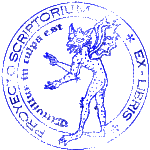
To Pierre Vilar and the memory of his wife
Gabrielle for their many kindnesses to me.

HERBERT R. SOUTHWORTH was a leading historian of the Spanish Civil War. During a long and varied career, he worked at the Library of Congress, was a publicist for the Spanish Republic during the Civil War, and served with the U. S. Office of War Information in North Africa during the Second World War. In 1946, he founded Radio Tangier, which he managed until 1960. He built a huge collection of books on the Spanish Civil War and taught at the Universities of California and Vincennes, Paris. He wrote widely on twentieth-century Spain, including El mito de la cruzada de Franco (1963) and Guernica! Guernica!: A Study of Journalism, Diplomacy, Propaganda and History (1977).
[1] I have previously dealt with this problem in El mito de la cruzada de Franco, Paris, Ruedo Ibrico, 1963, pp. 123, 247258; Le mythe de la croisade de Franco, Paris, Ruedo Ibrico, 1964, pp. 163176, 208213; La destruccin de Guernica, Paris, Ruedo Ibrico, 1977, pp. 124126; Historia 16, Madrid, no. 26, June 1978, pp. 4157; El mito de la cruzada de Franco, Barcelona, Plaza y Jans, 1968, pp. 195213, 367370. This book attempts to include all the references to the secret documents that I have discovered through years of research.
[2] Gregory Zinoviev was an old Bolshevik, long-time companion of Lenin, who became in 1919 chairman of the executive committee of the recently founded Communist International (Comintern). The card catalogue of the Bibliothque de Documentation Internationale Comtemporaine (University of Nanterre) describes the Zinoviev Letter as follows:
Document, signed Zinoviev; Chairman of the Foreign Committee Presidium of the Third International, dated 15th September 1924, addressed to the Central Committee of the C. P. in Great Britain, giving the latter orders for practical rebellion against their Government; on the eve of the vote ratifying the Treaty between G. B. and the USSR. Intercepted by the Foreign Office, it gave rise to a bitter diplomatic row between the English Government and the Soviet Government who alleged that the document was a forgery. In general, historians today believe it to be such and to have been written by Russian emigrs. In 1966, the Foreign Office made no statement on the matter.
Another catalogue card referring to the book by Lewis Chester, Stephen Fay and Hugo Young entitled The Zinoviev Letter (London, Heinemann, 1967) reads as follows:
Letter signed Zinoviev, 3rd International, 1924, actually forged by Russian emigrs in Berlin, sent to English CP to incite them to revolution and to support Anglo-Russian agreements being discussed. Intercepted by the Foreign Office, this forgery changed the course of the elections and changed political and economic relationships.
[3] Whether Marinus van der Lubbe actually set the fire, whether or not his motivations were politically Communist, whatever may have been his mental capabilities, there is no doubt that the Communist Plot concerning the Reichstag fire was a Nazi invention. A recent biographer of Hitler, Joachim C. Fest, wrote in 1973:
the communists always passionately denied any connection with the fire and in fact they had no motive whatsoever for it By instantly taking advantage of the fire to further their plans for dictatorship, the Nazis made the deed their own and manifested their complicity in a sense that is independent of whodunit questions. In Nuremberg, Gring admitted that the wave of arrests and persecutions would have been carried out in any case, that the Reichstag fire only accelerated these steps.
(Hitler, Harmondsworth, Penguin, 1977, pp. 587688)
Moreover in a showcase tribunal in Leipzig, where the Communist leaders were put on trial by the Nazis, Dimitrov, the Comintern head, and the others accused, were freed.
[4] This policy of justifying the military uprising by references to the documents continued for a long time outside Spain, but in Spain itself, this artifice was, beginning early in 1937, contradicted by the conflicting claims of the Carlists, the Alfonsine monarchists, the Falangists and the military, all of whom were, as they thought they saw victory approaching, jockeying for positions to demand their prerogatives as conspirators of the first hour. See Southworth, Antifalange, Paris, Ruedo Ibrico, 1967, pp. 8991.
[5] Del Moral was apparently a man of means. Douglas Jerrold, who was active in a small committee formed in England after the arrival of the Republic in 1931, and which included Luis Boln and Sir Charles Petrie, wrote: The energizing factor on this committee was the Marquis del Moral, whose remarkable and overflowing hospitality kept our small group in being and in remarkable amity over a number of years. (Georgian Adventure, London, Collins, 1937, pp. 361362). Del Moral was also busily engaged behind the scenes during the Civil War. (See Southworth, Guernica! Guernica!, Berkeley, University of California Press, 1977, pp. 126132.)
[6] FO 371/20538. W 10767, Folio 257. Del Morals covering note was sent from Sidmouth, on the Devonshire coast, about 240 kilometres from London. The urgency in the note suggested that he was extremely eager for the documents to reach the Foreign Office. Why had he then waited three days before dispatching them to London? From whom had he received the documents? See n. 159.
[7]Ibid., Folio 255. Mr C. J. Norton wrote: Ishould prefer not to put anything in writing to M. del Moral. Iassume that he is on the side of the military party If he returns to the charge we could tell him orally that we dont believe them to be genuine. As seen further on, this oral reply was evidently given to del Moral.
Font size:
Interval:
Bookmark:
Similar books «Conspiracy and the Spanish Civil War. The brainwashing of Francisco Franco»
Look at similar books to Conspiracy and the Spanish Civil War. The brainwashing of Francisco Franco. We have selected literature similar in name and meaning in the hope of providing readers with more options to find new, interesting, not yet read works.
Discussion, reviews of the book Conspiracy and the Spanish Civil War. The brainwashing of Francisco Franco and just readers' own opinions. Leave your comments, write what you think about the work, its meaning or the main characters. Specify what exactly you liked and what you didn't like, and why you think so.

